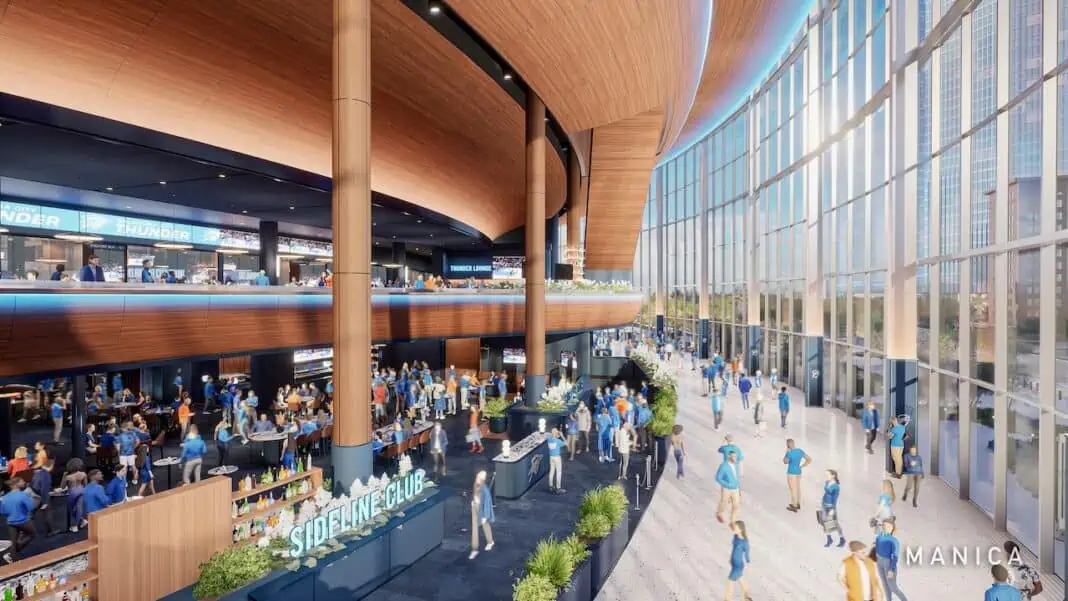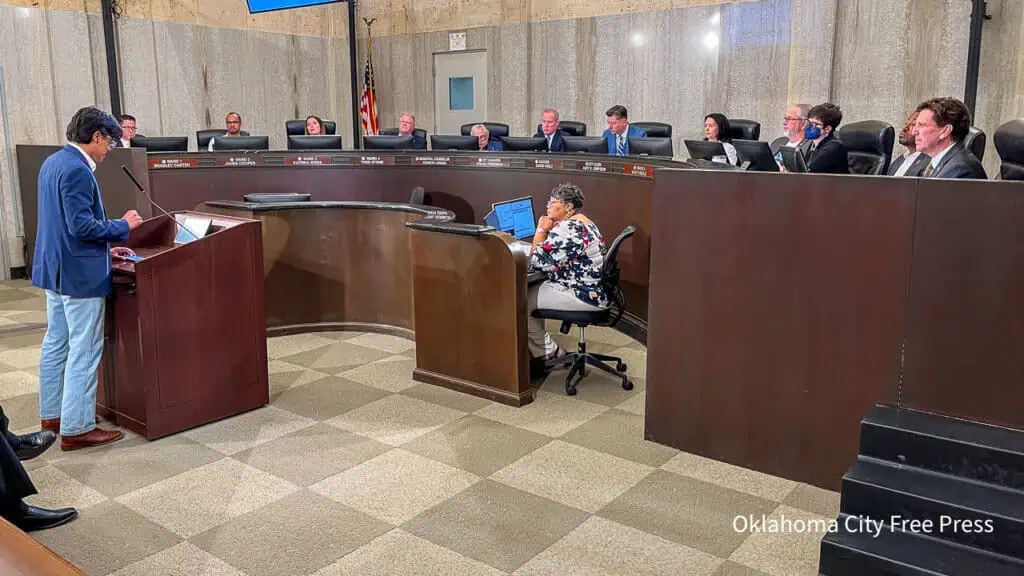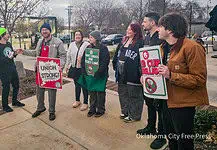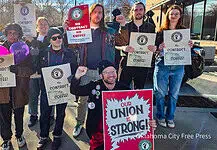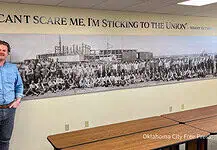OKLAHOMA CITY — Despite pushback from some on the Oklahoma City Council, the progressive hiring and staffing policies that became a cornerstone of the debate over the $1 billion new arena will remain in place.
In a surprise move at the City Council’s June 17th meeting, Ward 1 Councilman Bradley Carter moved to delete the already agreed-upon provisions that would ensure local staffing and wage guarantees for future employees of the taxpayer-funded arena.
Those provisions survived thanks to a 5-4 vote of the City Council, but that split represents a significant shift from the 8-1 vote that originally approved the agreement in 2023.
Ward 2 councilor James Cooper – long seen as the driving force behind the development and negotiation of the agreement – said that he was blindsided by the sudden growth in opposition.
“I didn’t know about it until that day on Council in front of the viewing public,” Cooper told Free Press in a phone call Tuesday.
Community Benefits Agreement
As part of the agreement to build and fund a new state-of-the-art arena to house the Oklahoma City Thunder, City leaders and arena operators ASM Global negotiated and approved a Community Benefits Agreement ahead of the public vote in December of 2023.
That CBA included provisions to ensure competitive wages for future arena staff and to require a workforce intermediary to hire that staff primarily from underserved areas of OKC’s inner city, a provision heavily sought by Cooper.
“It’s a very data-driven approach,” Cooper said. “You go into parts of town that have historically high unemployment and under-employment to staff those jobs, and then you say we have to pay those workers wages commensurate with City of OKC workers.”
The plan was based largely on a similar CBA between the City of Milwaukee and the Milwaukee Bucks basketball team.
But when the final operating agreements and partnership approvals between the City and ASM came up for a final vote on June 17th, Councilman Carter moved to strip those assurances from the CBA in a surprise motion that saw support from three other council members.
Holt, other councilors support CBA
Mayor David Holt voted to side with Cooper and others in continuing to support the existing CBA provisions, but not before offering an aside to Cooper from the dais.
“I think, Councilman Cooper, that you’ve got to recognize that your support has eroded, not strengthened since the 8 to 1 vote in 2023,” Holt said, “and continue to work with your colleagues on these topics.”
When reached for comment, Holt reiterated his support for those staffing and wage protections.

“I felt – in addition to the stated merits of the underlying proposal – that we had made assurances to the public throughout this process that these measures would be included,” Holt told Free Press in a text exchange Wednesday. “And since nothing had materially changed, I felt we should sustain those intentions.“
That sentiment was echoed at the June 17th meeting by Ward 4 Councilman Todd Stone, who said he believes that the agreement’s prior approval should be left intact.
“I totally understand the concept of requiring a private business to do something, but one little part I struggle with is it’s a city-owned facility,” Stone told the other council members. “For myself, with ASM agreeing to this already, I kind of prefer to keep the agreement the way it is and move forward.”
But Stone also sought to calm and mediate the tensions on the dais by admitting that he saw both pros and cons in the CBA.
“There are things in it I’m not tickled about, and there are other things I’m absolutely super excited about,” Stone told the other City Council members. “You know, Councilman Cooper, you didn’t get everything you wanted, but you can see ‘hey, I got some good things in there, let’s move forward.’ That’s kind of where I am at right now.”
Labor peace agreement nixed – for now
In the lead-up to the arena vote in late 2023, Cooper also championed a “labor peace agreement,” a provision guaranteeing future arena staff the right to unionize without management interference.
That element was ultimately removed from the current agreement and put on hold pending further negotiation through a working group comprised of City officials, labor leaders, and representatives from the Thunder and ASM.
As of now, no labor peace agreement has yet been approved or successfully negotiated, and the provision, again based on a similar agreement in Milwaukee, is taking “a breather,” according to Cooper.
“It’s not that it’s on the back burner, it’s just that right now we have to focus on creating this hiring call,” Cooper told Free Press. “It was a battle just to get these first two things, so to think that we’re just going to easily have a labor peace agreement in a right-to-work state? It’s really going to be incumbent upon labor to help my colleagues, at least a majority of them, understand.”

At least one of those colleagues is already openly voicing clear support for a labor agreement.
“It’s frustrating to me that the majority of Council is willing to sign away over $1 billion of our sales tax dollars and not push for more protection and less interference for workers to organize to collectively bargain,” Ward 6 councilor JoBeth Hamon told Free Press through text. “I am disappointed about the reception of the LPA, especially because it seems like the management still has the most power, even if we had been able to implement an LPA.”
Cooper said that he still hopes to return to negotiations for a labor peace agreement before the arena’s opening and initial staffing, currently projected for 2028.
Brett Fieldcamp is the owner and Editor in Chief of Oklahoma City Free Press. He has been covering arts, entertainment, news, housing, and culture in Oklahoma for nearly two decades and served as Arts & Entertainment Editor before purchasing the company from founder Brett Dickerson in 2026.
He is also a musician and songwriter and holds a certification as Specialist of Spirits from The Society of Wine Educators.
